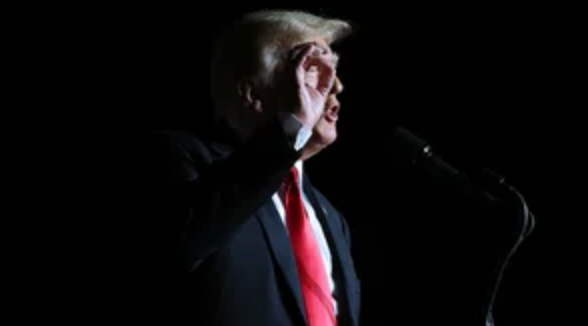
The trove of documents requested Wednesday by the House committee investigating the Jan. 6 attack shows an interest in former President Trump’s mental health and whether he was considering using the military to remain in power.
In addition to seeking records on Trump’s family members and a long list of former aides, the panel is asking the White House and federal agencies to relay any conversations about removing the former president from office and whether he planned to enact martial law.
The committee is zeroing in on the period from Election Day to Inauguration Day and wants agencies to turn over “all documents and communications relating to the Twenty-Fifth Amendment to the U.S. Constitution,” which allows the vice president and a majority of Cabinet members to remove the president if they believe he is unfit for office.
Agencies are also asked to relay “all documents and communications related to the mental stability of Donald Trump or his fitness for office” following Jan. 6, when a mob of the Trump supporters stormed the Capitol.
The documents, if provided, could offer new insight into whether former Vice President Pence and Trump’s Cabinet members were considering taking action following numerous reports that administration officials were considering invoking the 25th Amendment during Trump’s last two weeks in office.
During that period, the House passed a symbolic measure encouraging Pence to invoke the amendment. Pence responded at the time by saying he did not believe “such a course of action is in the best interest of our nation.”
The line of inquiry from the House committee investigating Jan. 6 also shows an interest in the lengths Trump might have been willing to go to stay in power.
A letter to the Pentagon from the House panel seeks any records about “the potential use of military power to impede or ensure the peaceful transfer of power” between the election and the inauguration and any “possible attempts by President Donald Trump to remain in office after January 20, 2021.”
Several of the letters ask for documents relating to martial law or any analysis of its use.
One request specifically asks the Defense Department for “all documents and communications relating to the possibility of invoking the Insurrection Act, including but not limited to documents and communications concerning that possibility with respect to preparation for the events of January 6, 2021, or responding to the January 6, 2021, attack.”
Martial law would place the military in control of a number of government functions while the Insurrection Act of 1807 allows the president to “call forth the militia for the purpose of suppressing such insurrection.” It hasn’t been used since 1992, when former President George H.W. Bush invoked it to quell riots following the police beating of Rodney King.
Experts point out that the insurrection caused by Trump’s own supporters on Jan. 6 could have been used by the president to invoke the act.
“I think there was some concern that President Trump might be interested in creating some sort of ruckus just so that he can say, ‘Ope, I need to use the Insurrection Act. I’m shutting down all of D.C. today. You won’t be able to certify the election.’ And create just enough chaos to create room for him to change the election,” said Barbara McQuade, who served as a U.S. attorney in the Obama administration.
Trump floated the idea of invoking the Insurrection Act last summer amid protests following the death of George Floyd at the hands of police.
“If a city or state refuses to take the actions that are necessary to defend the life and property of their residents, then I will deploy the United States military and quickly solve the problem for them,” Trump said at the White House in June 2020.
Former acting Secretary of Defense Christopher Miller testified two months ago that he was “cognizant of the fears promulgated by many about the prior use of the military in the June 2020 response to protests near the White House and fears that the president would invoke the Insurrection Act to politicize the military in an anti-democratic manner.”
The committee also appears to be searching for any resistance Trump may have faced near the end of his administration, asking numerous agencies for communications “relating to defying orders from the president.”
Beyond military efforts, the inquiry seeks to look at the various ways Trump may have tried to use the Department of Justice (DOJ) to further his false claims about the 2020 election.
The DOJ is being asked to provide communications with former acting Attorney General Jeffrey Rosen, who told lawmakers Trump was persistent in pressuring him to discredit the election, and Jeffrey Clark, another DOJ official who reportedly pushed the department to cast doubt on the results.
The New York Times has reported how Trump, annoyed by Rosen’s rebuffs on the election front, weighed replacing him with Clark.
The House panel’s request to the National Archives — which retains presidential records — asks for “all documents and communications related to efforts, plans, or proposals to contest the 2020 Presidential election results.”
But the request to DOJ goes beyond that, requesting information from several officials who threatened to resign as Trump weighed replacing Rosen and asking for information on whether “any other DOJ official” was involved in “challenging the validity of the 2020 election.”
Via The Hill


